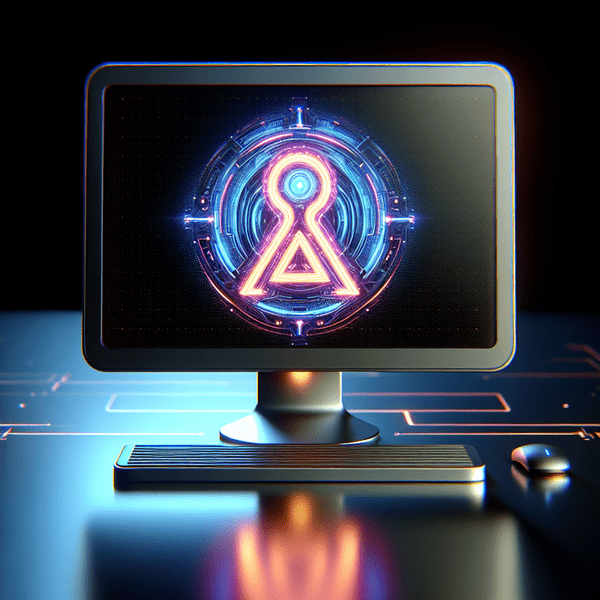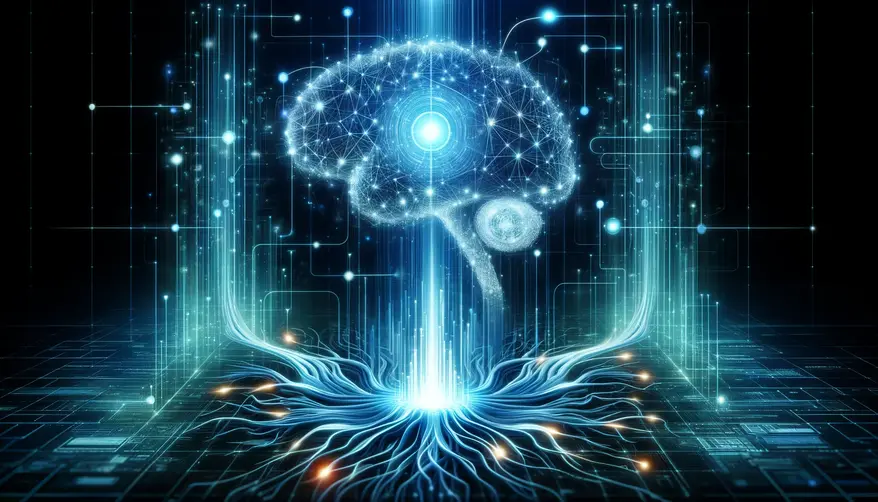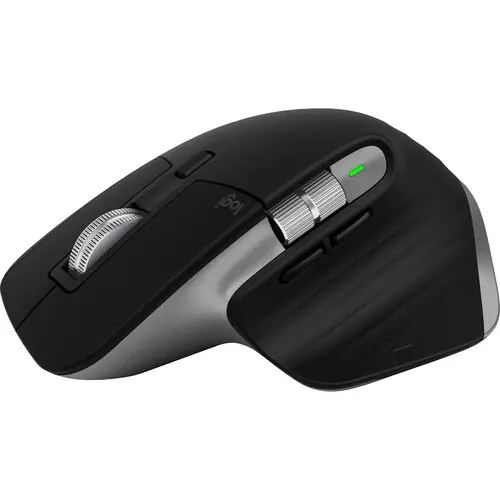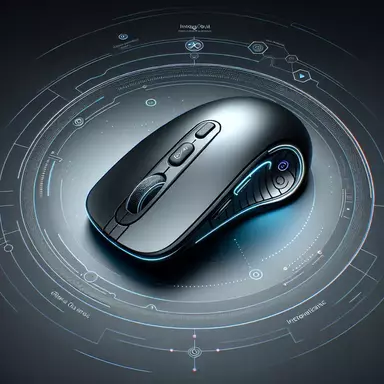AI PCs | Revolutionizing Computing with AI Capabilities
Empowering Everyday Computing with Advanced AI Integration
Introduction
AI PCs, or Artificial Intelligence Personal Computers, are a new generation of computers designed to integrate AI capabilities into everyday computing tasks. These AI PCs are equipped with specialized components such as neural processing units (NPUs) to accelerate AI workloads and enable local inference on the device.
The significance of integrating AI capabilities into everyday computing tasks cannot be overstated. AI has revolutionized various industries, from healthcare and finance to gaming and entertainment. By bringing AI capabilities to personal computers, users can now harness the power of artificial intelligence for a wide range of tasks, enhancing efficiency, productivity, and overall user experiences.
AI PCs work by leveraging advanced algorithms and neural networks to process vast amounts of data and make intelligent decisions. They can analyze patterns, recognize images and speech, understand natural language, and perform complex computations at incredible speed. This enables them to perform tasks that were previously only possible with cloud-based AI systems or specialized hardware.
With AI PCs, users can experience the benefits of AI in real-time without relying on an internet connection or external servers. This means faster response times, improved privacy and security, and the ability to work offline. Whether it's voice assistants that understand your commands, image recognition software that enhances your photo editing capabilities, or recommendation systems that personalize your user experience, AI PCs have the potential to transform the way we use computers in our daily lives.

Understanding AI PCs
AI PCs, or Artificial Intelligence Personal Computers, represent a new frontier in computing technology. These cutting-edge computers are designed to integrate AI capabilities into everyday tasks, revolutionizing the way we interact with technology.
Overview of AI PC Technology
At the core of AI PCs are neural processing units (NPUs), specialized components that play a pivotal role in accelerating AI workloads. These NPUs are optimized for performing complex mathematical computations essential for machine learning and other AI tasks. By leveraging NPUs, AI PCs can handle sophisticated AI algorithms with remarkable efficiency.
Role of Neural Processing Units in Accelerating AI Workloads
Neural processing units (NPUs) are specifically designed to process data and perform calculations in a manner that mimics the human brain's neural network. This enables AI PCs to execute tasks such as natural language processing, image recognition, and data analysis at exceptional speeds, making them ideal for both personal and professional use.
Benefits of Local Inference on AI PCs
One of the key advantages of AI PCs is their ability to perform local inference, allowing them to process data and generate insights directly on the device without relying heavily on cloud-based resources. This not only enhances privacy and security but also results in significantly reduced latency, enabling real-time decision-making and responsiveness in a wide range of applications.
Leading Companies in AI PC Technology
When it comes to AI PC technology, several leading companies have made significant contributions. Intel, AMD, and Nvidia are at the forefront of developing AI PCs, with each bringing its own unique innovations to the table.
- Intel: Intel has been a key player in the AI PC space, focusing on integrating AI capabilities into their processors. Their processors are equipped with AI-specific features such as deep learning boost technology, which accelerates AI workloads. Intel also offers software tools like OpenVINO™ Toolkit that optimize AI performance and enable developers to deploy AI models on Intel-based systems.
- AMD: AMD has been making strides in AI PC technology with its Ryzen processors. These processors combine high-performance computing power with efficient AI capabilities. AMD's Ryzen processors feature advanced machine learning algorithms that enhance gaming experiences and enable real-time rendering for applications like video editing and 3D modeling.
- Nvidia: Nvidia is known for its expertise in graphics processing units (GPUs) and has made significant contributions to AI PC technology. Their GPUs, such as the GeForce RTX series, integrate dedicated tensor cores that accelerate AI computations. This enables real-time ray tracing and deep learning super sampling (DLSS), resulting in enhanced graphics and improved performance in gaming and content creation.
Each company brings its own strengths to the table, whether it's Intel's focus on optimizing AI performance, AMD's combination of high-performance computing and AI capabilities, or Nvidia's expertise in GPU acceleration for AI workloads.
These leading companies continue to push the boundaries of AI PC technology, driving innovation and enabling users to harness the power of artificial intelligence in their everyday computing tasks.
Applications of AI PCs
AI PCs are revolutionizing the way we communicate and interact with technology. With their advanced AI capabilities, these powerful computers are enhancing various aspects of our digital lives. Let's explore some of the exciting applications of AI PCs:
1. Enhanced Video Call Experiences
AI PCs are transforming video calls by offering advanced features like background blur and audio/video filtering. These capabilities allow users to have professional-looking video backgrounds without the need for physical green screens. Background blur helps to eliminate distractions and keep the focus on the individual or subject, creating a more immersive and engaging video call experience.
2. Image Generation
One fascinating application of AI PCs is their ability to generate images based on text prompts. By leveraging deep learning algorithms, these computers can interpret text descriptions and generate corresponding images that closely match the given description. For example, by simply describing a beach sunset with palm trees, an AI PC can create a stunning visual representation of that scene. This technology opens up endless possibilities for creative expression and storytelling.
3. Potential Applications of Image Generation Technology
The image generation capabilities of AI PCs have numerous potential applications across various industries. Here are a few examples:
- Design and Advertising: AI PCs can help designers quickly visualize their ideas by generating images based on textual descriptions.
- Gaming: Game developers can use AI PCs to create realistic scenes and characters based on narrative descriptions, enhancing the overall gaming experience.
- E-commerce: Online retailers can utilize AI-generated images to showcase products in different settings, allowing customers to visualize how they would look in real-life scenarios.
- Film and Animation: AI PCs can assist in generating concept art or previsualization for movies and animated content, streamlining the creative process.
These are just a few examples of how AI PCs are reshaping our digital experiences through advanced AI capabilities. As technology continues to evolve, we can expect even more innovative applications to emerge.
Future Trends in AI PC Technology
The future of AI PC technology looks promising, with significant growth expected in the shipments of next-generation AI PCs. As AI becomes more integrated into our daily lives, the demand for AI PCs will continue to rise. Here are some key trends to look out for:
1. Forecasted growth in shipments of next-generation AI PCs
Market research indicates that the shipments of next-generation AI PCs are expected to skyrocket in the coming years. This growth can be attributed to several factors, including advancements in AI algorithms, increased computing power, and the growing need for AI capabilities in various industries.
2. Comparison with hardware-enabled AI PCs
While hardware-enabled AI PCs have been prevalent in the market for some time, there is a shift towards next-generation AI PCs that focus on software-driven AI capabilities. These new AI PCs leverage powerful neural networks and advanced algorithms to perform complex tasks without relying solely on specialized hardware. This approach allows for greater flexibility and scalability in deploying AI applications.
3. Enhanced user experiences
Future AI PCs will continue to enhance user experiences by providing seamless integration of AI features into everyday tasks. For example, imagine a PC that can automatically generate high-quality images based on text prompts or assist with real-time rendering and photo editing. These advancements will empower users to accomplish tasks more efficiently and creatively.
4. AI democratization
One of the key goals of future AI PC technology is to democratize access to artificial intelligence. As AI becomes more accessible through user-friendly interfaces and pre-trained models, individuals from diverse backgrounds will be able to harness the power of AI for their personal and professional needs.
The journey towards AI-enabled computing has just begun, and the potential for innovation and transformation is immense.
Conclusion
The potential of AI PCs in empowering digital life with artificial intelligence is truly groundbreaking. As technology continues to advance, the integration of AI capabilities into everyday computing tasks is becoming increasingly significant. AI PCs equipped with specialized components such as neural processing units (NPUs) are at the forefront of this revolution, accelerating AI workloads and enabling local inference on the device itself.
AI PCs not only enhance user experiences but also democratize AI applications, making them more accessible to a wider audience. The contributions of leading companies like Intel, AMD, and Nvidia have been instrumental in driving the development of AI PC technology, paving the way for innovative features such as background blur in video calls, audio/video filtering, and image generation from text prompts.
The forecasted growth in shipments of next-generation AI PCs is a testament to the increasing demand for these advanced computing systems. It's clear that AI PCs are set to play a pivotal role in shaping the future of computing, offering unprecedented capabilities and possibilities.
In conclusion, AI PCs represent a transformative leap forward, ushering in a new era where artificial intelligence is seamlessly integrated into our daily digital lives. The potential applications and impact of AI PCs are vast, promising to revolutionize how we interact with technology and harness the power of artificial intelligence for diverse purposes.
FAQs (Frequently Asked Questions)
What are AI PCs?
AI PCs, or Artificial Intelligence Personal Computers, are a type of personal computer that integrates artificial intelligence technology to enhance performance and user experience.
What is the role of neural processing units in AI PCs?
Neural processing units (NPUs) are specifically designed to accelerate AI workloads by efficiently processing complex algorithms and data sets.
What are the benefits of local inference on AI PCs?
One of the key advantages of AI PCs is their ability to perform local inference, enabling faster decision-making and reducing reliance on cloud-based processing for certain tasks.
Which companies are leading in AI PC technology?
Several leading companies are at the forefront of AI PC technology, driving innovation and advancements in this field.
What are some applications of AI PCs?
AI PCs are revolutionizing video call experiences, image generation, and have potential applications in various industries such as healthcare, finance, and entertainment.
What are some future trends in AI PC technology?
The future of AI PC technology looks promising with forecasted growth in shipments, enhanced user experiences, and the goal of democratizing AI for wider accessibility.


